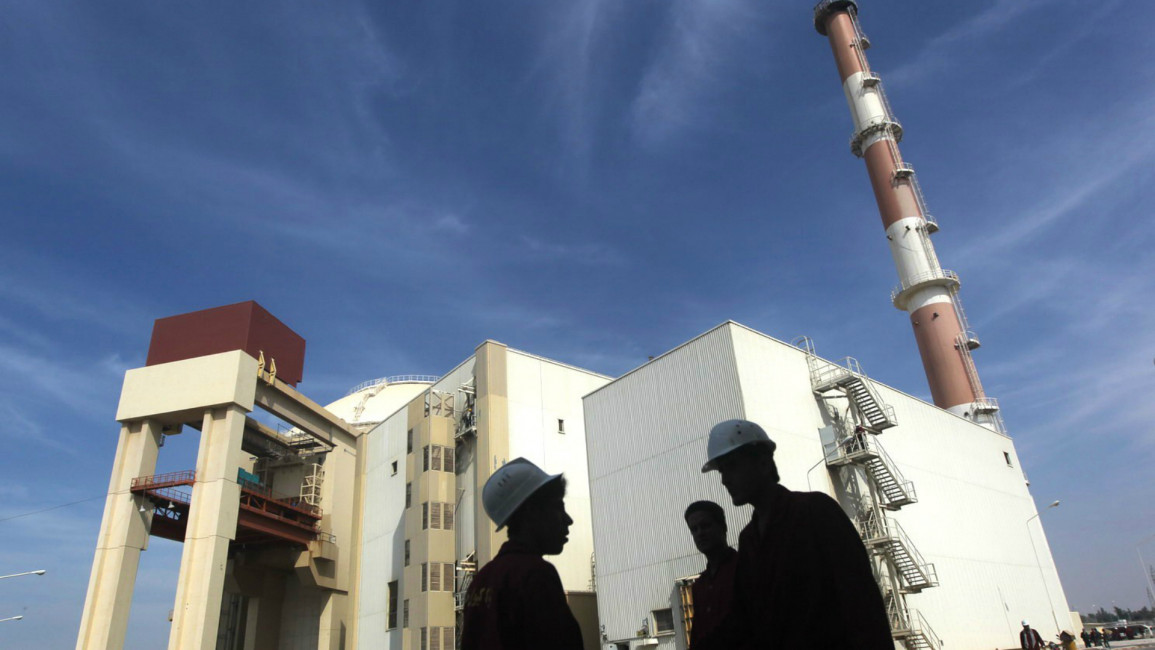
Pro-Israel lobby has distorted US democracy
Pro-Israel lobby has distorted US democracy
Comment: The pro-Israel lobby has twisted congressional reactions to the Iranian nuclear deal away from public opinion and the Obama administration's wishes, says Pam Bailey.
4 min read
AIPAC is unhappy about US-Iran negotiations over Iran's nuclear program [Getty]
The need for "checks and balances" on the different branches of the US government is a central tenet of the country's constitution. This is based on the wise realisation that "power corrupts, and absolute power corrupts absolutely".
In theory, congressional review and approval of presidential dictates is a welcome part of democracy - especially when they concern war and peace. For example, the imposition (and removal) of sanctions on Iran.
However, an insidious force has long been at work to distort and corrupt the steps put in place to achieve this goal. It is special interest-driven donors and lobbies, turbo-charged by hard cash. The king is AIPAC, the American Israel Public Affairs Committee.
| Middle East policy in the US is determined by the highest bidder - Rosenberg |
AIPAC is fighting what could be an existential battle to stop the US government from reaching a deal with its counterpart in Iran over lifting sanctions in return for limits on its allegedly burgeoning nuclear program.
AIPAC enabled the Israeli prime minister, Binyamin Netanyahu, to give a speech to a joint session of Congress, without the US president's approval. It also appears that AIPAC played a key role in encouraging Tom Cotton and 46 other Republican senators to send an open letter directly to Iranian leaders warning them that any nuclear deal must be approved by Congress.
"Middle East policy in the US is determined by the highest bidder," said MJ Rosenberg, a former senior AIPAC staffer, at a recent conference in Washington called The Israel Lobby: Is it good for the US? Is it good for Israel?
"The highest bidder is AIPAC. What that means is that democracy in the US is itself a myth."
US public opinion is decidedly against AIPAC and Netanyahu aggressively intervening in US foreign policy. This included the Israeli prime minister giving a tour of Sunday-morning TV talk shows to openly try to scuttle what he called a "bad Iran deal".
In a Gallup poll conducted last month, US opinion of Netanyahu dropped 7 percentage points, to just 38 percent, after his congressional stunt. Admittedly, the drop was mainly among those who identify as Democrats.
Likewise, a March poll at the University of Maryland found that, despite Israel and AIPAC's fear-mongering, 61 percent of US citizens favour pursuing a long-term agreement that allows Iran to continue some nuclear enrichment.
Most true experts (not politically motivated lobbyists) agree. Reza Marashi, a research director for the National Iranian American Council and former staffer for the State Department's Iranian affairs office, told the conference that the deal was "a more far-reaching compromise than I thought would ever happen. We are getting the most intrusive inspection routine of any (nuclear) programme in the world."
Marashi explained that there is another significant benefit for the Middle East that "is on fire; virtually every country is fighting a war in some way, shape or form."
He said the deal offers Iran and the US an opportunity to discuss the region as a whole. "We haven't been talking with Iran in any substantial way for at least a decade, if not longer. The nuclear issue has been the 8,000lb gorilla in the room. Let's face it - durable solutions to any major conflict require participation by every country with the capacity to wreck it."
Such reasoning has not stopped the AIPAC lobbying machine or its beneficiaries. An unusual alliance of Republican opponents of the nuclear deal and some of Obama's strongest Democratic supporters formed in the Senate foreign relations committee to demand a congressional role in reviewing and approving any deal before sanctions can be lifted.
The unanimously approved bill now will move to the full Senate for a vote. True, it was watered down somewhat to shorten the review period, and requires a high hurdle to kill US participation in the deal, but it certainly sends the wrong signal to Iran at a delicate stage in negotiations.
"The alternative to a deal is no agreement at all - and no inspection of Iranian nuclear facilities, no obligations on their part," says Paul Pillar, a non-resident senior fellow at the Centre for Security Studies at Georgetown University.
Pillar questions what this shows about Israeli intentions and motivations. He asks why Israel is opposing a deal that would enforce inspections of a programme it claims to be so fierce.
"We've been negotiating for the better part of two years and there is not going to be a better deal," he said.
He added that Israel had been using Iran to exploit the fear factor to detract attention from its treatment of Palestinians.
"Iran also could become a major competitor for regional influence. Netanyahu wouldn't support any agreement, no matter what the terms," he said.
Opinions expressed in this article remain those of the author and do not necessarily reflect those of al-Araby al-Jadeed, its editorial board or staff.



